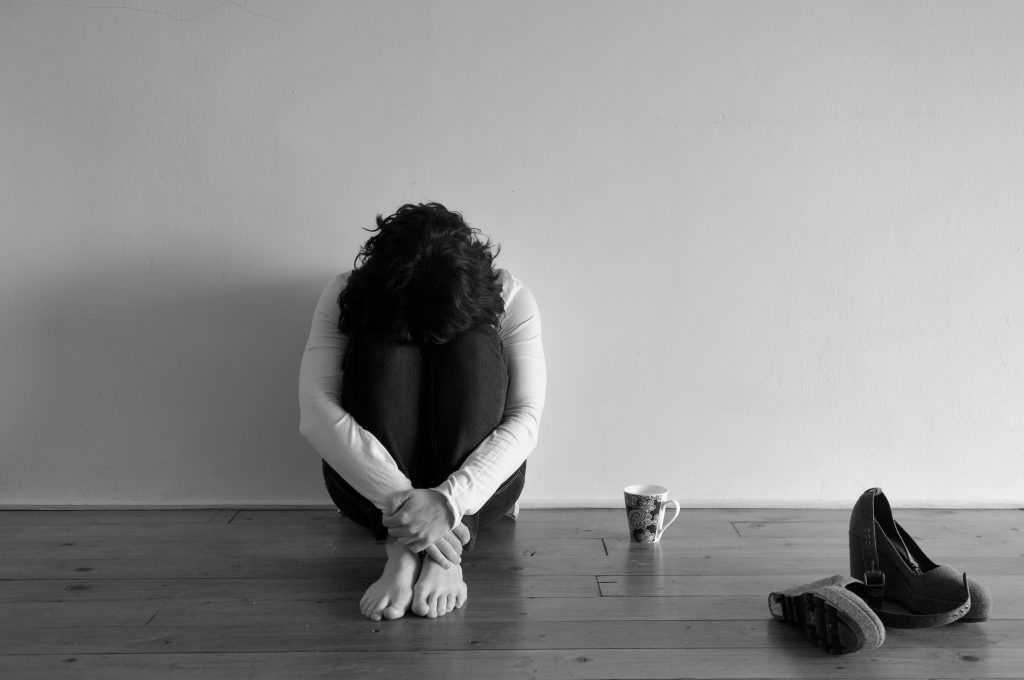
Feeling exhausted isn’t always just about lack of sleep. Emotional exhaustion sneaks up on you, making everyday tasks feel overwhelming—even when you can’t pinpoint exactly what’s wrong. Many people push through life without realizing their emotional energy is depleted. If you’re experiencing subtle shifts in your mood, motivation, or interactions, these red flags could be signs that you’re emotionally drained—but don’t know it.
1. You Feel Constantly Overwhelmed
Even small tasks feel monumental, and your to-do list keeps growing instead of shrinking. Everyday responsibilities that were once manageable now seem impossible to tackle. Instead of feeling productive, you find yourself procrastinating or avoiding obligations altogether. If the thought of basic chores leaves you exhausted, your emotional reserves may be running low. A sense of constant pressure without relief is a major sign of emotional exhaustion.
2. You Struggle to Make Decisions
Indecisiveness is a lesser-known symptom of emotional drain. When your mind is overwhelmed, even simple choices—like what to eat for dinner—can feel impossible. You second-guess yourself, worry excessively about outcomes, or rely on others to make choices for you. Decision fatigue happens when your emotional capacity is maxed out, leaving you mentally stuck. If your ability to make everyday decisions is fading, it might be time to check in with yourself.
3. You’re Detached or Numb
One of the biggest red flags of emotional exhaustion is feeling disconnected from your emotions. You might notice that things you once enjoyed no longer excite you, or that you’ve become indifferent to situations that should make you happy or upset. Emotional numbness often happens when your mind is protecting itself from overload. While detachment might seem like a temporary relief, it’s actually a sign that you need to address emotional burnout before it worsens.
4. Small Frustrations Feel Unbearable
Do minor inconveniences set you off more than usual? Emotional exhaustion lowers your tolerance for stress, making even the smallest frustrations feel like major problems. You might find yourself snapping at loved ones, feeling irritated over trivial issues, or unable to shake off negativity. If your reactions seem exaggerated compared to the situation at hand, your emotional tank might be empty. Recognizing these patterns can help you regain balance.
5. You Find Yourself Avoiding Social Interaction

Socializing takes energy, and when you’re emotionally drained, even talking to close friends can feel exhausting. If you’ve been isolating yourself more than usual, skipping invitations, or dodging phone calls, it may be a sign that your emotional energy is depleted. While alone time can be refreshing, prolonged avoidance of social interactions may indicate underlying burnout. The key is finding a balance that doesn’t leave you feeling completely disconnected.
6. You Experience Random Mood Swings
Sudden emotional shifts—feeling fine one moment and frustrated the next—can signal emotional exhaustion. These mood swings happen because your emotional regulation is impaired when you’re drained. Without enough mental energy to manage emotions, reactions may feel exaggerated or unpredictable. If you notice unexplained irritation, sadness, or bursts of anger, consider whether stress and fatigue are playing a role.
7. You Have Trouble Sleeping (Even When Exhausted)
Ironically, emotional exhaustion can disrupt sleep patterns. Despite feeling drained, you might struggle with falling asleep or staying asleep throughout the night. Racing thoughts, anxiety, or restlessness can prevent deep rest, leaving you feeling groggy the next day. If exhaustion is paired with sleep disturbances, it may indicate deeper emotional depletion. Prioritizing relaxation techniques and nighttime routines can help ease sleep struggles.
8. Your Motivation Has Disappeared
Tasks that once excited you now feel pointless. Hobbies, work, and personal goals don’t hold the same appeal, and you find yourself going through the motions rather than fully engaging. Emotional exhaustion drains enthusiasm, making it difficult to stay motivated. If you’ve lost interest in things that once fueled your passion, it might be time to recharge emotionally.
9. Physical Symptoms Start Appearing
Emotional exhaustion doesn’t just impact your mind—it can manifest physically. Unexplained headaches, muscle tension, stomach issues, and fatigue are common signs that stress is taking a toll. Your body responds to emotional depletion by signaling distress, warning you that something isn’t right. Paying attention to physical symptoms can help you recognize when emotional rest is needed.
10. You Feel Like You’re Running on Empty
At the core of emotional exhaustion is the sensation of running on empty—feeling as if you’re dragging through life without relief. If you constantly feel depleted, unmotivated, and emotionally disconnected, it’s a sign that your energy reserves need replenishing. Addressing emotional burnout begins with acknowledging it, allowing yourself rest, and seeking support when needed.
Recognizing Burnout and Recharging
Emotional exhaustion often creeps in unnoticed, affecting your mindset, relationships, and well-being. Identifying these red flags early can help prevent deeper burnout and guide you toward healthy coping mechanisms. Taking small steps—such as prioritizing self-care, seeking emotional support, or setting boundaries—can make a difference in restoring balance.
Have you ever experienced emotional exhaustion without realizing it? What helped you recover? Share your insights in the comments—I’d love to hear your thoughts!
Read More:
When “Just Joking” Crosses the Line Into Emotional Abuse
I Love Them Both: The Emotional Rollercoaster of Loving Multiple Partners

Latrice is a dedicated professional with a rich background in social work, complemented by an Associate Degree in the field. Her journey has been uniquely shaped by the rewarding experience of being a stay-at-home mom to her two children, aged 13 and 5. This role has not only been a testament to her commitment to family but has also provided her with invaluable life lessons and insights.
As a mother, Latrice has embraced the opportunity to educate her children on essential life skills, with a special focus on financial literacy, the nuances of life, and the importance of inner peace.
